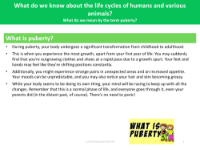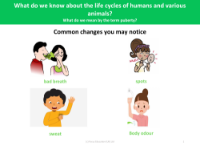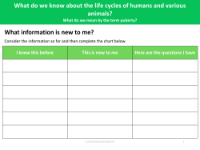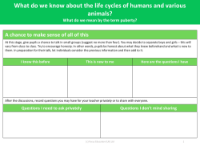What do we mean by the term puberty? - Presentation
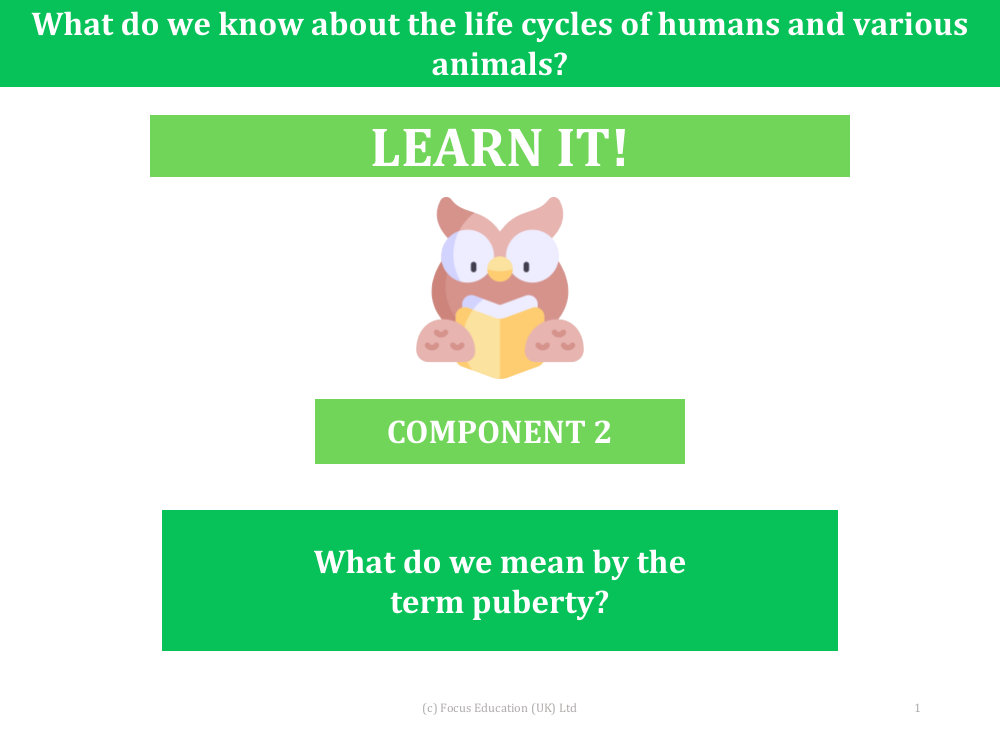
Science Resource Description
Puberty is a significant developmental stage where a child's body begins to transition into adulthood. This process is marked by a series of physical and hormonal changes triggered by the brain, specifically the hypothalamus and pituitary gland, which increase the production of hormones such as growth hormone, LH (Luteinizing Hormone), and FSH (Follicle-Stimulating Hormone). These hormones are responsible for the various changes that occur during puberty, and although both boys and girls produce them, they have different effects depending on the sex of the individual. The onset of puberty can vary, typically starting between ages 8-13 for girls and 10-15 for boys, and the pace and experience of these changes can differ from person to person.
During puberty, individuals may notice a rapid increase in growth, often referred to as a growth spurt, and changes in the body such as the development of body odour, sweat, spots, and sometimes bad breath. In girls, hormones like oestrogen and progesterone affect the ovaries and adrenal glands, leading to the development of secondary sexual characteristics and the onset of menstruation. For boys, hormones stimulate the testes and adrenal glands to produce testosterone and sperm. As these changes occur, it's common for emotions and moods to fluctuate. The educational material suggests that students reflect on what they already know about puberty, what is new information to them, and encourages them to formulate questions they may have, fostering an environment of open discussion and learning.

